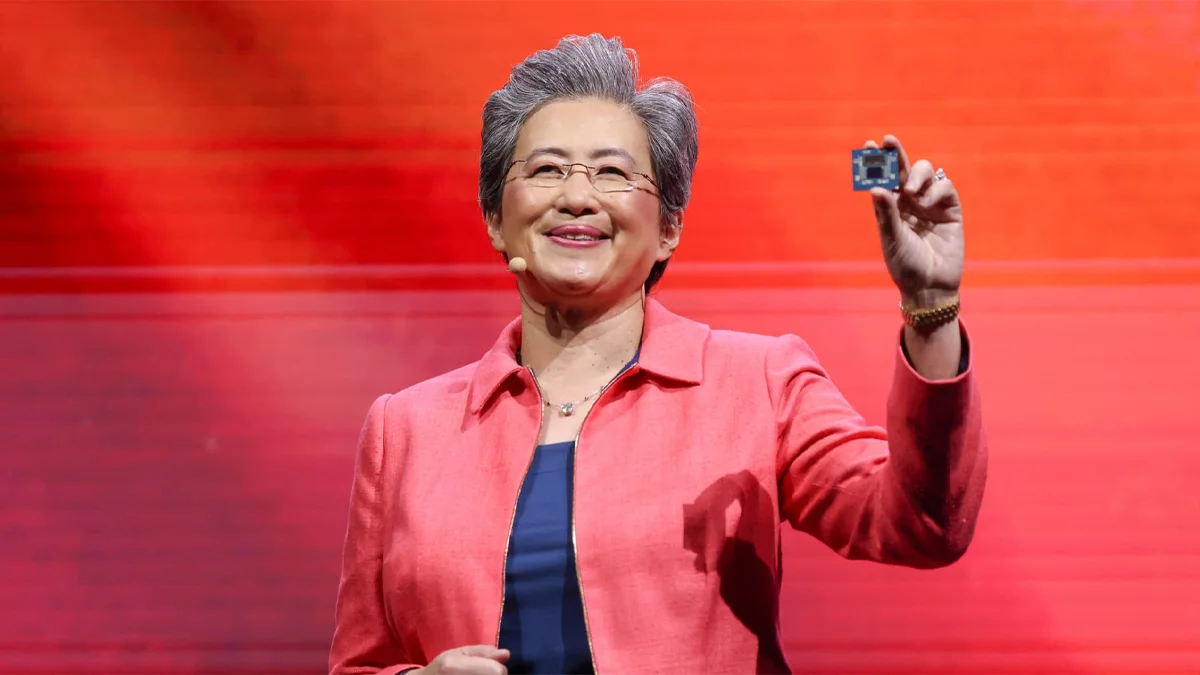Necessary Always Active
Necessary cookies are required to enable the basic features of this site, such as providing secure log-in or adjusting your consent preferences. These cookies do not store any personally identifiable data.
|
||||||
|
||||||
|
||||||
|

AMD launched an AI chip called Instinct MI325X yesterday, October 10, 2024. According to CNBC, the chip maker will start producing the new chip by the end of the year. The new AMD AI chip could take on Nvidia’s Blackwell AI chip if tech giants and developers see it as a close substitute.
This perception could also force Nvidia to review its chip pricing. Demand for Nvidia GPUs has been high over the past year with the company enjoying close to 75% gross margins. Nvidia will start shipping Blackwell AI chips in high quantities early next year.
Increasingly, tech companies are developing AI-powered products. For instance, OpenAI uses advanced generative AI to run products such as ChatGPT. Generative AI needs huge data centers that are powered by GPUs to perform the necessary processing tasks. This has created high demand for AI chips and captured investor interest.
“AI demand has actually continued to take off and actually exceeded expectations. It’s clear that the rate of investment is continuing to grow everywhere,” AMD CEO, Lisa Su said.
Nvidia has been dominating the AI chip market for the last few years, with AMD falling in second place in terms of market share. Industry experts estimate Nvidia’s market share for the data center AI chips to be more than 90%.
AMD is now working hard to expand its market share from its rival. The chip manufacturer forecasts that its market share will be valued at $500 billion by 2028. In 2025, the company plans to release a new chip dubbed MI350, and MI400 in 2026.
The AMD AI processor launch may capture the interest of inventors who want to ride the AI boom by investing in other companies. However, AMD stocks suffered a 4% drop on as the company unveiled its newest AI chip October 10. So far, AMD shares have gained 20% in 2024 compared to 175% gain on Nvidia’s stock.
Having unveiled the new AMD MI325x AI Chip, the chip maker is fast-tracking its annual schedule of releasing new chips. This places it in a better position to compete with Nvidia and leverage the AI chip boom. The new AMD chip succeeds the MI300X that hit the market in 2023.
With the AMD vs Nvidia AI chip battle intensifying, AMD may find it challenging to chip into Nvidia’s market share because its rival’s chips use their own programming language called CUDA. AI developers have adopted this language as the standard, effectively locking them within the Nvidia ecosystem.
AMD said it has been working to improve its competing ROCm software to enable developers to switch AI models over to its accelerators. The company has touted its AI accelerators as more competitive in situations where AI models make predictions or generate content due to AMD’s advanced chip memory.
The AI accelerators and chips have taken prominence in the semiconductor industry. However, AMD’s main business has been revolving around central processing unit manufacturing. CPUs are at the heart of every server.
In quarter two of 2024, the company’s data center sales hit the $2.8 billion mark while AMD AI chip sales accounted for $1 billion of the company’s total sales revenue. Intel still dominates the CPU market with Xeon chips, with AMD placing its market share in data center CPU at 34%. AMD is looking to expand its market share in the CPU space with its new EPYC 5th Gen CPUs.
“Today’s AI is really about CPU capability, and you see that in data analytics and a lot of those types of applications,” Su said.
Almost all GPUs need a CPU on the same system to boot the computer up. During the October 10, 2024 event, the company positioned its new line of CPUs as ideal for AI data workloads. AMD will also be competing with Qualcomm for the CPU market.
In September 2024, Qualcomm unveiled a new AI-powered PC processor in a bid to overturn Intel’s dominance in the PC processor market. Qualcomm’s AI chip runs on Windows operating systems and is designed to support AI processes without reducing battery life on PC devices.